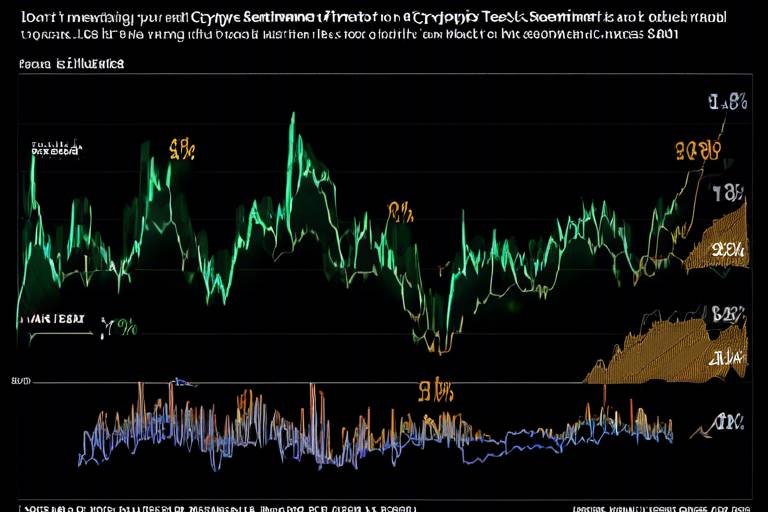Crypto Taxation - What Investors Need to Know
The world of cryptocurrency is as exciting as it is complex, especially when it comes to taxation. For many investors, understanding how to navigate the murky waters of crypto taxation can feel overwhelming. With the rise of digital currencies, the IRS has stepped up its game, classifying cryptocurrencies as property rather than currency. This classification has profound implications for how transactions are taxed, and it’s crucial for investors to grasp these concepts to avoid potential pitfalls. In this article, we’ll break down the essential elements of crypto taxation, including regulations, reporting requirements, and strategies for compliance, providing you with the knowledge you need to manage your tax obligations effectively.
When the IRS declared cryptocurrencies as property, it changed the game for investors. This means that every time you sell, trade, or even use your digital assets to make a purchase, you are engaging in a transaction that may trigger a tax event. Just like selling a piece of real estate or stocks, any profit you make from your crypto investments is subject to capital gains tax. This classification also means that losses can be used to offset gains, which is a silver lining for many investors. So, the next time you hear someone say, "it's just digital money," remember that the IRS sees it quite differently, and that could have significant consequences for your wallet.
Identifying what constitutes a taxable event in the realm of cryptocurrency is crucial for compliance. Here are some common transactions that trigger tax obligations:
- Selling Cryptocurrency: When you sell your crypto for fiat currency, this is a taxable event.
- Trading Cryptocurrency: Exchanging one cryptocurrency for another is also considered a taxable event.
- Using Cryptocurrency for Purchases: If you use crypto to buy goods or services, this transaction is taxable as well.
Each of these events requires you to calculate your capital gains or losses, which can be a daunting task if you’ve made multiple transactions. Keeping detailed records of each transaction is essential for accurate reporting and compliance.
When you sell or trade cryptocurrencies, the next step is to determine your capital gains or losses. The formula is fairly straightforward: subtract your cost basis (the original value of the asset plus any transaction fees) from the sale price. If the result is positive, you have a capital gain; if it’s negative, you’ve incurred a capital loss. Understanding this calculation is vital because it directly impacts your tax liabilities. For instance, if you purchased Bitcoin at $5,000 and sold it for $10,000, your capital gain would be $5,000, which is subject to taxation. However, if you sold it for $3,000, you’d have a loss of $2,000 that could potentially offset gains from other investments.
The distinction between short-term and long-term capital gains is another crucial aspect of cryptocurrency taxation. Generally, if you hold your crypto for one year or less before selling, you incur short-term capital gains, which are taxed at your ordinary income tax rate. Conversely, if you hold your crypto for more than one year, you benefit from long-term capital gains rates, which are typically lower. This difference can lead to significant tax savings, so it’s worthwhile to strategize your selling points based on how long you’ve held your assets.
One of the best strategies for minimizing your tax liabilities is to offset gains with losses, a practice known as tax-loss harvesting. If you’ve made profitable trades, consider selling some underperforming assets to realize those losses. This can effectively reduce your taxable income, allowing you to keep more of your hard-earned gains. For example, if you made a $10,000 gain from one investment but also realized a $4,000 loss from another, you can offset your gains, resulting in a net gain of $6,000. This strategy is not only smart but can also provide some relief during tax season.
Proper reporting is essential to avoid penalties and ensure compliance with IRS regulations. Investors are required to report their cryptocurrency transactions on their tax returns, which means keeping meticulous records of every trade, sale, and purchase. The IRS has specific forms for reporting cryptocurrency transactions, such as Form 8949 for capital gains and losses, and Schedule D for summarizing your overall capital gains and losses. Failing to report these transactions can lead to hefty fines and interest, so it’s crucial to stay organized and informed.
Implementing effective tax strategies can significantly minimize your liabilities. Here are some methods you can use to optimize your tax situation:
Investors can take advantage of tax-advantaged accounts for their cryptocurrency investments. Options like Individual Retirement Accounts (IRAs) allow you to invest in cryptocurrencies while deferring taxes until retirement. This can lead to substantial tax savings and is a smart move for long-term investors. Just imagine the potential growth of your crypto assets without the immediate tax burden!
Navigating the complexities of crypto taxation can be a headache, which is why consulting tax professionals who specialize in cryptocurrency is invaluable. They can help you understand the nuances of tax regulations, ensure compliance, and optimize your tax strategies. It’s like having a GPS for your tax journey—guiding you through the twists and turns to help you reach your destination without getting lost.
1. Do I have to pay taxes on cryptocurrency if I haven’t sold it?
No, you only owe taxes on realized gains, which occur when you sell, trade, or use your cryptocurrency for purchases.
2. How do I report cryptocurrency on my taxes?
You report cryptocurrency transactions using Form 8949 and Schedule D on your tax return.
3. Can I deduct losses from my cryptocurrency investments?
Yes, you can use capital losses to offset capital gains, reducing your overall tax liability.
4. What are the penalties for not reporting cryptocurrency transactions?
Penalties can include hefty fines and interest on unpaid taxes, so it’s crucial to report accurately.

Understanding Cryptocurrency as Property
When it comes to cryptocurrency, one of the first things investors should grasp is that the IRS classifies it as property. This classification is crucial because it fundamentally changes how transactions involving cryptocurrencies are treated for tax purposes. Think of cryptocurrencies like digital gold or stocks; just like these assets, when you buy, sell, or trade them, you are engaging in transactions that can lead to capital gains or losses. This means that every time you make a transaction involving cryptocurrency, you need to consider the tax implications, which can sometimes feel like navigating a labyrinth!
The classification of cryptocurrencies as property implies that any transactions you engage in will trigger tax obligations similar to those associated with traditional investments. For instance, if you sell Bitcoin for a profit, that profit is considered a capital gain, and you will owe taxes on it. Conversely, if you sell at a loss, you can potentially use that loss to offset other capital gains, which is a silver lining for many investors. It's like playing a game of chess; every move counts, and you need to anticipate the consequences of each transaction.
Moreover, this property classification brings with it a set of specific rules that investors must adhere to. For example, when you exchange one cryptocurrency for another, this is treated as a taxable event. You might think, “But I just swapped my Ethereum for Litecoin!” However, the IRS sees this as a sale of your Ethereum, and you’ll need to report any gains or losses accordingly. The same goes for using cryptocurrency to purchase goods or services. Even though it feels like a simple transaction, it’s essential to keep track of the fair market value of the crypto at the time of the purchase to accurately report any potential gains or losses.
Here’s a quick breakdown of how cryptocurrency transactions are treated:
| Transaction Type | Tax Implication |
|---|---|
| Selling Cryptocurrency | Capital gains tax on profits |
| Trading One Crypto for Another | Considered a sale; report gains/losses |
| Using Crypto for Purchases | Taxable event; report based on fair market value |
Understanding these nuances can be overwhelming, but they are vital for ensuring compliance with tax regulations. Investors should maintain meticulous records of their transactions, including dates, amounts, and the purpose of each transaction. This information is not only essential for accurate reporting but also for substantiating your claims in case of an audit.
In summary, recognizing cryptocurrencies as property is a critical first step for investors. It sets the stage for understanding the various tax implications of trading, selling, or using these digital assets. As you navigate this complex landscape, remember that knowledge is power, and staying informed will help you make better decisions and avoid costly mistakes.

Taxable Events in Crypto Trading
Understanding what constitutes a taxable event in the world of cryptocurrency trading is crucial for any investor looking to stay compliant with IRS regulations. In simple terms, a taxable event occurs whenever you sell, trade, or use your cryptocurrency for purchases. These actions can lead to capital gains or losses, which have significant implications for your tax obligations. It's like navigating a maze; one wrong turn could lead you to unexpected tax liabilities.
To put it into perspective, think of your cryptocurrency holdings as a collection of rare coins. Each time you choose to sell one of these coins, the IRS wants to know how much you made or lost on that transaction. This means that even if you simply exchange one cryptocurrency for another, you may trigger a taxable event. The IRS treats cryptocurrencies not as currency but as property, which is a fundamental aspect of how these transactions are taxed.
Here are some key actions that can trigger taxable events:
- Selling Cryptocurrency: When you sell your crypto for fiat currency (like dollars), you must report any capital gains or losses based on the price at which you acquired the cryptocurrency.
- Trading One Crypto for Another: If you swap one type of cryptocurrency for another, this is also considered a taxable event. You need to calculate the gain or loss based on the fair market value of the crypto you received in exchange.
- Using Cryptocurrency for Purchases: Spending your crypto to buy goods or services triggers a taxable event. Again, you’ll need to report any gains or losses based on the fair market value of the cryptocurrency at the time of the transaction.
- Receiving Cryptocurrency as Income: If you earn cryptocurrency through mining, staking, or as payment for services, the fair market value at the time you receive it is considered taxable income.
It's essential to keep detailed records of all your transactions, including dates, amounts, and the fair market value at the time of each event. This documentation will be invaluable when it comes time to file your taxes. Failure to report these taxable events can lead to penalties, so it’s better to be safe than sorry.
In summary, every time you engage in a transaction involving cryptocurrency, you may be triggering a taxable event. The IRS has specific guidelines on how to report these activities, and understanding them can save you from headaches down the road. Always keep your records organized, and consider consulting with a tax professional if you're unsure about your obligations.

Realizing Capital Gains and Losses
When it comes to cryptocurrency, one of the most crucial aspects that investors must navigate is the realization of capital gains and losses. But what does this mean exactly? In simple terms, whenever you sell or trade your cryptocurrencies, you are required to determine whether you’ve made a profit (capital gain) or a loss (capital loss) on that transaction. This process is essential because it directly impacts your tax obligations. For instance, if you bought Bitcoin for $5,000 and sold it for $8,000, you’ve realized a capital gain of $3,000. Conversely, if you sold it for $4,000, you’ve incurred a loss of $1,000.
Calculating these gains and losses isn’t just a matter of subtraction; it involves understanding the basis of your cryptocurrency. The basis is typically the amount you paid for the asset, including any fees. So, if you paid $5,000 for Bitcoin and incurred a $50 transaction fee, your basis would be $5,050. If you later sell this Bitcoin for $8,000, your gain would be calculated as follows:
| Description | Amount |
|---|---|
| Sale Price | $8,000 |
| Basis (Purchase Price + Fees) | $5,050 |
| Capital Gain | $2,950 |
It’s important to note that the IRS requires you to report these gains and losses on your tax return, and failure to do so can lead to penalties. But here’s where it gets even more interesting: you can also realize losses to offset gains. This concept is known as tax-loss harvesting. If you sold another cryptocurrency at a loss, you could use that loss to reduce your overall taxable income. For example, if you realized a gain of $2,950 from Bitcoin but had a loss of $1,000 from another crypto asset, you could offset your gain, resulting in a net taxable gain of $1,950.
However, it’s essential to keep meticulous records of all your transactions. This includes the date of acquisition, the purchase price, the sale price, and any associated fees. By maintaining detailed records, you can ensure that you are accurately reporting your gains and losses come tax season. Additionally, consider using crypto tax software to help streamline this process, as it can automatically calculate your gains and losses based on the transactions you input.
In conclusion, realizing capital gains and losses in cryptocurrency is not just about the numbers; it’s about understanding the implications of each transaction on your overall tax liability. By being proactive and organized, you can navigate the complexities of crypto taxation with confidence.
- What is a capital gain? A capital gain is the profit made from selling an asset for more than its purchase price.
- How do I report my cryptocurrency gains and losses? You report your gains and losses on Schedule D of your tax return, detailing each transaction.
- Can I offset my capital gains with losses from other investments? Yes, you can offset gains with losses from other investments to reduce your taxable income.

Short-Term vs. Long-Term Gains
When it comes to cryptocurrency investments, understanding the difference between short-term and long-term capital gains is crucial for your tax situation. The IRS has established specific holding periods that determine how your gains will be taxed. If you hold your cryptocurrency for one year or less before selling, any profit you make is considered a short-term gain. This means that it will be taxed at your ordinary income tax rate, which can be significantly higher than the rates for long-term capital gains.
On the flip side, if you hold onto your crypto for more than one year, any profit is classified as a long-term gain. This distinction is vital because long-term capital gains are generally taxed at lower rates, which can range from 0% to 20%, depending on your overall income. For many investors, this can mean substantial tax savings. To illustrate this, let’s consider a quick example:
| Holding Period | Tax Rate | Example Gain | Tax Owed |
|---|---|---|---|
| Short-Term (1 year or less) | Ordinary Income Tax Rate (e.g., 24%) | $10,000 | $2,400 |
| Long-Term (more than 1 year) | Long-Term Capital Gains Rate (e.g., 15%) | $10,000 | $1,500 |
As you can see from the table, the difference in how much tax you owe can be quite significant. This is why many investors strategically plan their trades to maximize their long-term holdings. But how do you keep track of these holding periods? Well, it’s essential to maintain detailed records of your transactions, including purchase dates, amounts, and selling dates. Not only does this help in calculating your gains or losses, but it also ensures that you’re prepared come tax season.
In addition to the holding period, you should also consider how your overall investment strategy aligns with your tax situation. For instance, if you find yourself frequently trading, you might end up with a lot of short-term gains, which could lead to a higher tax bill. Conversely, if you adopt a buy-and-hold strategy, you can take advantage of lower long-term capital gains rates. It’s all about finding the right balance that works for your financial goals.
Ultimately, understanding the nuances of short-term versus long-term gains not only helps you navigate your tax obligations but also empowers you to make more informed investment decisions. So, next time you’re considering selling a portion of your crypto portfolio, take a moment to think about how long you’ve held those assets and how it will impact your tax situation.
- What is the holding period for long-term capital gains? The holding period is more than one year.
- How are short-term capital gains taxed? They are taxed at your ordinary income tax rate.
- Can I offset my short-term gains with long-term losses? Yes, you can use losses to offset gains in both categories.

Offsetting Gains with Losses
When it comes to cryptocurrency investments, the landscape can often feel like a wild rollercoaster ride, with values soaring one moment and plummeting the next. This volatility presents a unique opportunity for savvy investors to minimize their tax liabilities through a strategy known as tax-loss harvesting. Essentially, this involves selling off underperforming assets to offset gains made on more successful investments. But how does this work in practice?
Imagine you bought Bitcoin at $40,000, and then it skyrocketed to $60,000. That’s a $20,000 gain, which sounds fantastic until tax season rolls around. On the flip side, if you also purchased Ethereum at $3,000 and it dropped to $1,500, you’re sitting on a $1,500 loss. By selling Ethereum, you can offset your Bitcoin gains. In this case, your taxable gain would be reduced from $20,000 to $18,500. This can lead to significant savings when it comes to your tax bill.
However, there are some important rules to keep in mind. The IRS has specific regulations regarding how losses can be applied against gains. For instance, you can offset short-term gains with short-term losses and long-term gains with long-term losses. If your total losses exceed your total gains, you can use up to $3,000 of those losses to offset ordinary income, such as wages. Any remaining losses can be carried forward to future tax years, allowing you to continue benefiting from this strategy.
Here’s a quick breakdown of how this can work:
| Transaction Type | Amount | Tax Impact |
|---|---|---|
| Bitcoin Sale (Gain) | +$20,000 | Taxable Gain |
| Ethereum Sale (Loss) | -$1,500 | Offset Gain |
| Total Taxable Gain | +$18,500 | Reduced Tax Liability |
It’s also worth noting that the wash sale rule, which prevents investors from claiming a tax deduction for a security sold at a loss if they repurchase the same security within 30 days, does not apply to cryptocurrencies. This means you can sell a cryptocurrency at a loss and buy it back immediately without losing the benefit of the tax deduction. This flexibility can be a game-changer for investors looking to optimize their portfolio while managing their tax liabilities.
In conclusion, offsetting gains with losses is a powerful strategy for cryptocurrency investors. By understanding how to effectively implement tax-loss harvesting, you can navigate the complexities of crypto taxation more efficiently. Remember, keeping accurate records of all your transactions is crucial for this process. The more organized you are, the easier it will be to identify opportunities for offsetting gains and minimizing your tax burden.
- What is tax-loss harvesting? Tax-loss harvesting is the practice of selling securities at a loss to offset capital gains tax on other investments.
- Can I offset my crypto gains with losses from stocks? Yes, you can offset gains from cryptocurrency with losses from stocks or any other capital assets.
- What happens if my losses exceed my gains? If your losses exceed your gains, you can use up to $3,000 of those losses to offset ordinary income, and carry forward any remaining losses to future years.

Reporting Requirements for Crypto Transactions
When it comes to cryptocurrency, the excitement of trading and investing can often overshadow the more tedious aspects, such as reporting requirements. However, understanding these requirements is crucial for maintaining compliance with the IRS and avoiding potential penalties. The IRS treats cryptocurrencies as property, which means that any gains or losses from transactions must be reported just like you would for stocks or real estate. This classification leads to a variety of reporting obligations that every crypto investor should be aware of.
First and foremost, if you’ve engaged in any crypto transactions throughout the tax year, you’ll need to report them on your tax return. The primary form used for reporting cryptocurrency transactions is the Form 8949, where you’ll detail each transaction, including the date acquired, date sold, proceeds, cost basis, and the resulting gain or loss. After filling out Form 8949, the totals are then carried over to your Schedule D, which summarizes your overall capital gains and losses. This is essential to ensure that your tax return accurately reflects your financial activities.
But that's not all! There are specific situations that require additional attention. For instance, if you’ve received cryptocurrency as payment for goods or services, that income must be reported as ordinary income. This means you’ll need to include the fair market value of the cryptocurrency at the time of receipt on your tax return. Additionally, if you’ve engaged in mining activities, the income generated from mining must also be reported, and it’s typically subject to self-employment tax.
To make things clearer, let’s break down the types of transactions that typically require reporting:
- Buying and selling cryptocurrencies: Each transaction must be recorded, including the purchase price and sale price.
- Trading one cryptocurrency for another: This is considered a taxable event, and you must report any gains or losses.
- Using cryptocurrency for purchases: When you use crypto to buy goods or services, it’s treated as a sale of the cryptocurrency.
- Receiving cryptocurrency as income: This should be reported as ordinary income at its fair market value.
Moreover, it’s important to keep detailed records of all your transactions. This includes dates, amounts, involved parties, and the purpose of each transaction. Not only does this help in accurately filling out your tax forms, but it also provides a safety net in case of an audit. The IRS recommends maintaining records for at least three years from the date you file your tax return.
In conclusion, while the world of cryptocurrency can be thrilling, it’s essential to stay on top of your reporting obligations to avoid any nasty surprises come tax season. By understanding the requirements and keeping meticulous records, you can navigate the complexities of crypto taxation with confidence.
Here are some common questions that investors often have regarding crypto reporting:
- Do I need to report cryptocurrency transactions if I didn't make a profit? Yes, all transactions must be reported, even if they resulted in a loss.
- What if I forgot to report a transaction from a previous year? You may need to amend your tax return to include the missed transaction to remain compliant.
- Are there any penalties for failing to report crypto transactions? Yes, failing to report can lead to penalties, including fines and interest on unpaid taxes.

Tax Strategies for Crypto Investors
When it comes to investing in cryptocurrency, having a solid tax strategy can make a world of difference in your overall financial health. With the ever-evolving landscape of crypto regulations, it’s essential for investors to stay informed about the best practices to minimize tax liabilities. One effective strategy is to utilize tax-advantaged accounts. By investing in cryptocurrencies through accounts like IRAs (Individual Retirement Accounts), investors can potentially defer taxes on gains until retirement, which can be a significant advantage. This method not only allows for tax-free growth but also helps in planning for future financial needs.
Moreover, another crucial aspect of managing your crypto investments is the timing of your trades. Understanding when to buy and sell can have a profound impact on your tax obligations. For instance, if you hold your crypto for longer than a year, you may qualify for lower long-term capital gains tax rates. This can be a game-changer for your tax bill. Conversely, selling within a year may subject you to higher short-term rates, which are equivalent to your ordinary income tax rates. Therefore, keeping track of your holding periods can help you make more informed decisions.
Additionally, offsetting gains with losses is a strategy that savvy investors often employ. This practice, known as tax-loss harvesting, involves selling underperforming assets to offset the taxes owed on profitable ones. For example, if you made a profit of $5,000 on one cryptocurrency but incurred a loss of $2,000 on another, you can subtract the loss from the gain, effectively reducing your taxable income. This strategy not only helps in minimizing tax liabilities but also allows for a more strategic approach to managing your overall portfolio.
Consulting tax professionals is another key strategy that can’t be overlooked. The complexities of cryptocurrency taxation can be daunting, and having an expert on your side can provide clarity and direction. Tax professionals who specialize in cryptocurrencies can offer invaluable advice on compliance, potential deductions, and the latest regulations. They can help you navigate through the maze of tax forms and ensure that you're reporting your transactions accurately, thus avoiding any potential penalties.
In conclusion, implementing effective tax strategies is essential for crypto investors aiming to optimize their tax situations. Whether it’s utilizing tax-advantaged accounts, timing your trades wisely, offsetting gains with losses, or consulting with tax professionals, being proactive about your tax obligations can lead to significant savings. As the crypto landscape continues to evolve, staying informed and adaptable will be crucial for success.
- What are the tax implications of trading cryptocurrency? Trading cryptocurrency can trigger capital gains taxes, which depend on how long you held the asset before selling it.
- Can I use losses to offset gains? Yes, you can use losses from one investment to offset gains from another, reducing your overall tax liability.
- Should I consult a tax professional for my crypto investments? Absolutely! A tax professional can help you navigate the complexities of crypto taxation and ensure compliance.
- What is the difference between short-term and long-term capital gains? Short-term capital gains apply to assets held for less than a year and are taxed at ordinary income rates, while long-term gains apply to assets held for over a year and are taxed at lower rates.

Utilizing Tax-Advantaged Accounts
When it comes to managing your cryptocurrency investments, one of the most effective strategies you can employ is utilizing tax-advantaged accounts. These accounts offer a unique opportunity to grow your investments while minimizing your tax liabilities. Imagine having a garden where you can plant your seeds (or in this case, your investments) and watch them flourish without the constant worry of tax burdens weighing you down. This is essentially what tax-advantaged accounts provide for crypto investors.
There are several types of tax-advantaged accounts that can be used for cryptocurrency investments, with the most common being Individual Retirement Accounts (IRAs). A self-directed IRA allows you to invest in a wide range of assets, including cryptocurrencies. This means you can buy, hold, and sell your crypto within the IRA without incurring immediate tax consequences. Instead, taxes are deferred until you withdraw funds during retirement, potentially allowing your investments to grow significantly without the usual tax hits along the way.
Another option is the Health Savings Account (HSA), which is designed for individuals with high-deductible health plans. Not only can you save for medical expenses, but if you invest these funds in cryptocurrencies, any gains can be tax-free when used for qualifying medical expenses. This dual benefit makes HSAs a powerful tool for those looking to maximize their health and financial well-being.
However, it’s essential to understand the rules and regulations surrounding these accounts. For instance, with a self-directed IRA, you must adhere to specific guidelines to maintain the tax-advantaged status. Engaging in prohibited transactions, such as using the account for personal benefit or investing in collectibles, can lead to penalties and taxes that could negate the advantages you aimed to achieve. Therefore, staying informed and compliant is crucial.
Here’s a quick comparison of the two popular tax-advantaged accounts for crypto investments:
| Account Type | Tax Benefits | Withdrawal Rules |
|---|---|---|
| Self-Directed IRA | Tax-deferred growth | Taxed upon withdrawal |
| Health Savings Account (HSA) | Tax-free growth if used for medical expenses | Taxed if not used for qualified expenses |
In conclusion, utilizing tax-advantaged accounts can be a game-changer for cryptocurrency investors. By strategically placing your assets in these accounts, you can not only grow your wealth but also keep more of your hard-earned money in your pocket. Just like planting your garden in a protected greenhouse, these accounts shield your investments from immediate tax implications, allowing you to focus on nurturing your financial future.
- Can I use a traditional IRA for cryptocurrency investments?
Yes, a self-directed traditional IRA allows you to invest in cryptocurrencies, but you must follow strict IRS guidelines. - Are there any penalties for early withdrawal from a self-directed IRA?
Yes, if you withdraw funds before the age of 59½, you may incur a 10% early withdrawal penalty, in addition to regular income tax. - What types of cryptocurrencies can I hold in a tax-advantaged account?
Typically, you can hold a variety of cryptocurrencies, including Bitcoin, Ethereum, and others, but it’s essential to check with your account provider for specifics.

Consulting Tax Professionals
When it comes to navigating the labyrinth of cryptocurrency taxation, consulting tax professionals can be a game changer. The world of crypto is not just about buying and selling; it’s also about understanding the intricate tax implications that come with those transactions. Imagine trying to find your way through a dense forest without a map—this is often how investors feel when faced with tax regulations surrounding cryptocurrencies. A qualified tax professional can serve as that essential guide, helping you avoid pitfalls and navigate the complexities with ease.
Tax laws are constantly evolving, especially in the realm of cryptocurrency, where regulations can change overnight. This makes it crucial for investors to stay updated on the latest developments. A tax professional who specializes in cryptocurrency will have their finger on the pulse of these changes, ensuring that you are compliant with current laws. They can provide valuable insights into how recent legislation may affect your investments, helping you make informed decisions.
Moreover, a tax expert can assist in identifying deductions and credits that you may not be aware of. For instance, did you know that you can potentially write off certain expenses related to your crypto investments? These might include transaction fees, software costs, or even educational expenses related to your trading strategies. By leveraging their expertise, you can optimize your tax situation and potentially save a significant amount come tax season.
Additionally, the process of reporting your cryptocurrency transactions can be daunting. With various forms required by the IRS, it’s easy to feel overwhelmed. A tax professional can help you correctly fill out the necessary forms, such as Form 8949 for reporting capital gains and losses, and Schedule D for summarizing those transactions. This not only helps in avoiding penalties but also ensures that you are accurately reporting your financial activities.
In some cases, you might find yourself facing an audit. This is where having a tax professional by your side can be invaluable. They can guide you through the audit process, helping you gather the required documentation and representing you if necessary. Their experience can alleviate a lot of the stress associated with audits, allowing you to focus on your investments rather than legal complications.
In summary, consulting with a tax professional is not just a good idea; it's a smart strategy for any serious cryptocurrency investor. It can save you time, money, and stress in the long run. So, if you’re serious about your crypto investments, consider reaching out to a tax expert who can help you navigate this complex landscape. After all, in the world of crypto, knowledge is power, and the right guidance can lead to financial success.
- Why should I consult a tax professional for my crypto investments?
Consulting a tax professional can help you navigate complex regulations, optimize deductions, and ensure compliance with the IRS. - What kind of tax professional should I look for?
It's best to find someone who specializes in cryptocurrency taxation and understands the nuances of the market. - How can a tax professional help during an audit?
They can assist in gathering necessary documentation and represent you during the audit process, reducing your stress and ensuring compliance.
Frequently Asked Questions
- What is the IRS classification of cryptocurrencies?
Cryptocurrencies are classified as property by the IRS. This means that transactions involving crypto are subject to capital gains tax, similar to stocks or real estate. So, every time you sell, trade, or use your crypto for purchases, it’s treated like selling a piece of property.
- What are considered taxable events in cryptocurrency?
Taxable events in crypto trading include activities like selling your cryptocurrency for cash, trading one cryptocurrency for another, or using crypto to buy goods and services. If you’re unsure, think of it this way: any time you make a transaction that could result in a profit or loss, it’s likely taxable.
- How do I calculate my capital gains and losses?
To calculate your capital gains or losses, you need to determine the difference between the purchase price (cost basis) and the selling price of your cryptocurrency. If you sold your crypto for more than you paid, you have a gain. If you sold it for less, you have a loss. Keep in mind that these calculations can get tricky, especially if you have multiple transactions!
- What is the difference between short-term and long-term capital gains?
Short-term capital gains apply to assets held for one year or less and are taxed at your ordinary income tax rate. Long-term capital gains, on the other hand, apply to assets held for more than a year and benefit from lower tax rates. Essentially, holding onto your crypto can save you money on taxes!
- Can I offset my gains with losses?
Absolutely! This strategy is known as tax-loss harvesting. If you've made gains in some areas, you can use losses from other investments to offset those gains, reducing your overall tax liability. It’s a smart way to manage your taxes and keep more of your hard-earned money!
- What are the reporting requirements for cryptocurrency transactions?
When it comes to reporting, you'll need to complete forms such as Form 8949 and Schedule D when filing your taxes. It’s crucial to keep detailed records of all your transactions, including dates, amounts, and the purpose of each transaction, to ensure compliance and avoid penalties.
- How can I minimize my tax liabilities as a crypto investor?
There are several strategies you can implement to minimize tax liabilities, such as utilizing tax-advantaged accounts like IRAs for your crypto investments. These accounts can help you defer taxes or even eliminate them altogether, depending on the type of account you choose!
- Should I consult a tax professional for cryptocurrency tax issues?
Yes, consulting a tax professional who specializes in cryptocurrency can be incredibly beneficial. They can help you navigate the complexities of crypto taxation, ensure compliance with IRS regulations, and develop strategies tailored to your unique situation. It’s worth the investment to avoid potential pitfalls!



















